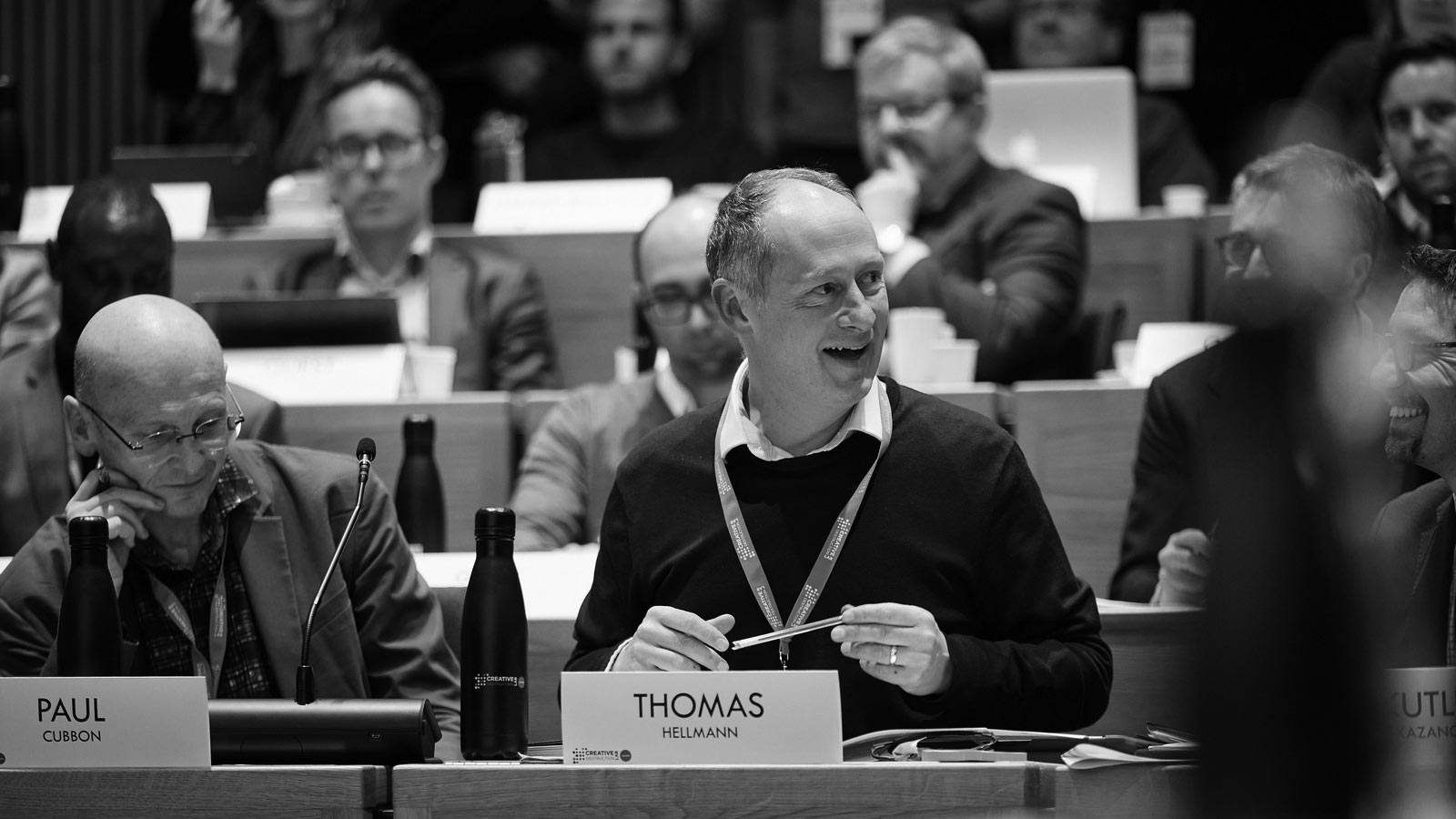Over the summer of 2020, Creative Destruction Lab (CDL) delivered CDL Recovery to accelerate entrepreneurs who provide solutions to the Covid crisis. CDL Recovery was conceived in March, launched in April, and ran from May to August. There will also be a follow-on program starting in the fall. For the summer program, 99 companies were selected among 550 applications from 45 countries. The program was entirely virtual and brought together over 400 mentors from the entire CDL network. 89% of companies had mentors from more than one CDL site. In addition, the ventures were supported by over 50 MBA students across 5 universities. The CDL Recovery program was guided by a Vision Council of business, science, and civic leaders. In this note, we briefly reflect on some of the key lessons learned.
Program structure
The original motivation for launching the program was that science is relevant to the Covid crisis and that entrepreneurs play an important role in bringing innovations to market. The program fit CDL’s core values and was driven by an explicit mission to tackle the public health and economic recovery challenges that emerged from the crisis. The focus was to look beyond the immediate short-term needs and work with entrepreneurs who tackle medium-term challenges, ideally with an impact horizon of 6 to 18 months. In May, we added a thesis to the program that CDL Recovery should focus on the “full stack of information-based solutions to accelerate the world’s recovery from the COVID-19 crisis” (The CEO’s guide to safely reopening the Workplace).
The 99 companies admitted to the program addressed several key challenges of the Covid crisis. A significant number of entrepreneurs focused on therapeutic aspects, including drug development, vaccines, and drug delivery systems. Closely related were a variety of clinical tools, such as predicting illness progression or managing hospital resources. Several entrepreneurs developed novel telemedicine solutions, from cardiac monitoring to mental health to pet care. Two important and interrelated themes concerned facilitating commerce in times of Covid, and providing workplace solutions, such as monitoring compliance to Covid rules at work. Furthermore, several companies tackled issues of social distancing and track and trace. Yet, the biggest theme of all was Covid testing, to which we now turn.
The emergence of a new testing paradigm
A total of 15 companies directly focused on new approaches to testing individuals for Covid. Several more focused on location-based testing (e.g., sewage testing) and on-going monitoring solutions. What we witnessed was the beginning of a new paradigm for testing that is likely to play a key role in the economic recovery from this pandemic (and possibly future ones as well ). CDL Recovery entrepreneurs used a number of novel technologies and approaches to build a new set of testing devices that are fundamentally different from what is currently available, such as PCR testing. While the details of the technological approaches differed across ventures, there was a common theme of building cheaper and easier-to-use testing solutions. The ambitious goal is to make testing ubiquitous throughout the economy. This goal fits exactly with the CDL Recovery thesis of focusing on information-based solutions.
The traditional clinical testing approach is slow, expensive, and requires considerable specialized expertise in hospitals and laboratories. The tests are designed for clinical use and aim to maximize diagnostic accuracy. By contrast, this new generation focuses on rapid and inexpensive tests that can be easily deployed without the need for specialized trained staff. The goal is to take testing out of the clinical setting and make it ubiquitous, to the point that the general public can easily receive frequent answers to the recurring question that lies at the heart of the Covid crisis: “Am I infectious?”
To build this new testing paradigm, entrepreneurs are taking considerable risk. They are targeting a new set of customers, such as employers and private individuals, who have never bought anything like this before. In practice, this means that the companies find it difficult to obtain a clear picture of what exactly their customers need. Some ventures hoped that employers will buy large quantities to regularly test all of their employees, some hoped for the emergence of a retail market where private individuals regularly use home testing kits, yet others hoped that national health systems will buy these tests to make them freely available to the general public.
Our testing ventures are moving away from swab tests which are considered unpleasant and difficult to administer. Many novel technologies rely on testing saliva samples, but some use blood or stool samples. Speed is of essence, almost all of the start-ups have a target to deliver test results within a day, many within an hour, and some even within minutes. Another important new development concerns electronic data capture of test results. While current procedures rely on manual data entry, approximately half of our testing ventures already integrate digital data management into their technology design. This aspect could become important if and when verified tests become a requirement for individuals to access certain facilities (e.g., an airport or a factory).
One sobering fact is that all of these start-ups have a long way to go. Most of them are at the prototype or pilot stage and need at least another 6 months (and often longer) before they can ship any product. Put differently, CDL Recovery participants had a first glimpse of what the testing market will look like, not in the coming months, but in the coming years.
The pros and cons of a Covid strategy
When we launched CDL Recovery, we set out to work with those entrepreneurs who build Covid solutions. However, what we learned over the course of the program is that pursuing a Covid strategy involves strategic trade-offs. One of the most hotly debated topics among our mentors was whether to advise companies for or against a Covid strategy. In the course of these debates, we collectively gained useful insights into this trade-off.
Arguably the ideal candidates for the program were those ventures that had Covid as their “raison d’être.” We estimate that this applied to 26% of all CDL Recovery companies. A more common scenario, applying to 40% of the companies, was that the Covid strategy complements the company’s core strategy. But for an estimated 20% of companies, the Covid strategy became a distraction to their core business. Interestingly, the further along a company was in its development path, the more likely the Covid strategy interfered with the core business. Put differently, pivoting is more difficult for scale-ups, as they have more to lose if they lose focus on their budding core businesses.
Across the many debates and deliberations, we gleaned three key reasons why mentors advised companies for a Covid strategy, and three reasons against. The first reason to pursue a Covid strategy was simply the economic opportunity, i.e., the new market demand that entrepreneurs aim to capture. The second reason was that a Covid strategy can be complementary to the core business. Such strategies were frequently described as “toeholds”, even “Trojan horses”. They help ventures get traction with their target customers. A small number of ventures also faced a surprising third reason: Covid had ruined their original market opportunity, and a pivot was necessary to reorient the business towards greener pastures.
The most common reason against pursuing a Covid strategy, voiced repeatedly by our mentors, was that Covid was a distraction to the core business. In some cases, the Covid application involved different customers and different go-to-market strategies that delayed progress on the core business. In some cases, the mentors cautioned against pursuing an idea that fell outside of the founders’ areas of technical expertise, there was always a concern for entrepreneurs to stay focussed and preserve the company’s limited resources. A second common reason against pursuing a Covid strategy was that the market is too competitive. Some opportunities are likely to be dominated by larger incumbents with more resources and greater credibility. Others are likely to be flooded by new entrants each vying for their space in a crowded market. Closely related, the third reason against Covid strategies was that “timing is everything”. In many cases the worry was that the start-ups would simply be too late. A fascinating debate emerged about the difference between being “first to market” versus becoming “best in market”. Several mentors thought that being first was unrealistic, but that being best should be the goal. Those mentors encouraged entrepreneurs to focus on developing truly game-changing solutions, rather than rushing to the market with undifferentiated products. Another issue was the longevity of the Covid opportunity. Mentors worried that the Covid market keeps changing and could disappear quickly. They argued that by the time the start-ups were ready for the market, demand might have moved on already.
Do entrepreneurs listen to the advice they receive from mentors? Among our CDL Recovery companies we tried to distil what our mentors advised in terms of Covid strategy, and what the entrepreneurs chose to do. When the mentors encouraged proposed Covid strategies, founders largely agreed and pursued them. However, when the mentors discouraged their Covid strategy, or when there was disagreement among mentors, more than half of founders still stuck to pursuing a Covid strategy, although they often modified its direction. Presumably, it should not come as a surprise that entrepreneurs have a strong mind of their own and don’t always listen to all the advice they receive. Still, mentors played a crucial role in refining Covid strategies, and sometimes convincing founders to revamp their strategies altogether.
Overall, the CDL Recovery program provided a rich set of learning opportunities. The CDL methodology worked surprisingly well online, and the program turned out to be a mutual learning experience for all the parties involved. Participants witnessed the emergence of a new paradigm for ubiquitous infection testing. They gained insights into the trade-offs that companies face when developing a Covid strategy alongside their core business. Finally, CDL Recovery showed that CDL has become a global community of mentors and experts that is deeply committed to supporting innovative entrepreneurs.
Professor Thomas Hellmann
Site Lead at CDL-Oxford
September 2020





